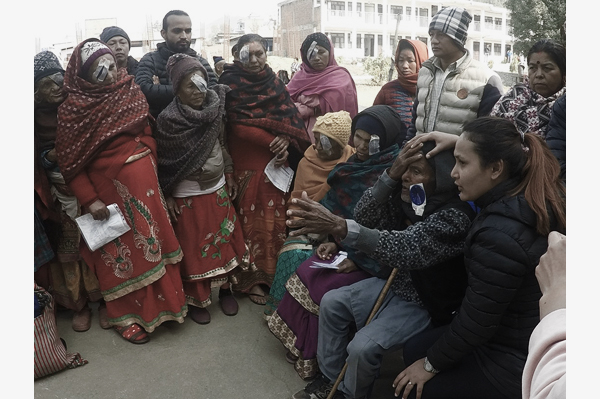Future Focus: Sunjuri Sun
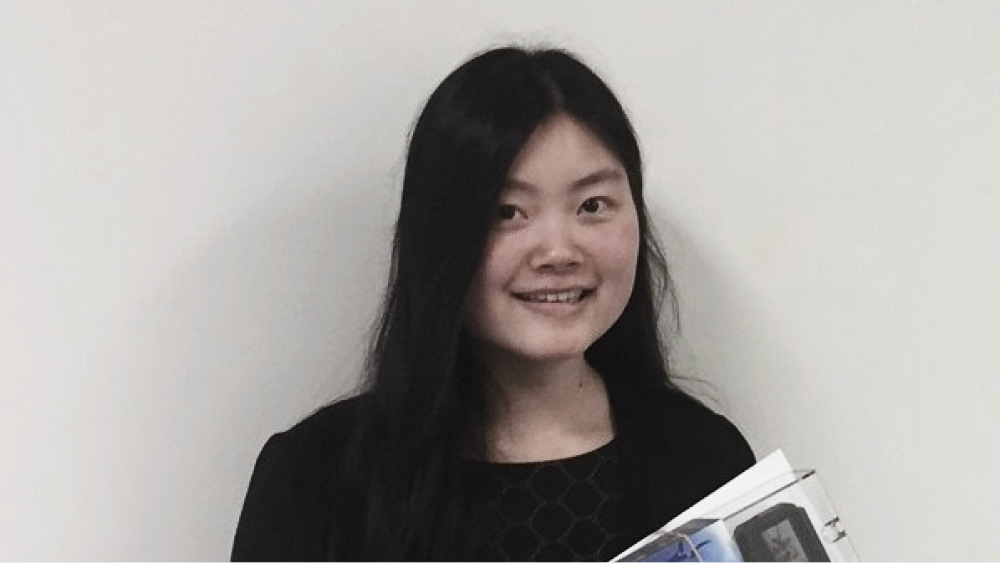
Monash University medical student, Sunjuri Sun, was one of the five recipients of our FutureFocus grant for 2017. Sunjuri received $2 500 to put towards her voluntary medical overseas elective, which she undertook in January 2018 at the Tilganga Institute of Ophthalmology in Kathmandu, Nepal.
Her placement involved partaking in a variety of hospital activities, such as outpatient clinics and the operating theatre, as well as participating in a surgical outreach camp that provided free cataract surgeries to remote Nepali communities.
Read a full account of Sunjuri’s incredible journey below.
Choosing Nepal as an elective destination
Sunjuri hadn’t even stepped foot in Nepal but could already sense the beauty and diversity of Nepal from the plane window on her journey over to Kathmandu. This breathtaking landscape, which draws thousands of thrill-seeking tourists every year, is also what makes the delivery of healthcare challenging.
When speaking about the reasons for choosing to undertake her elective in Nepal and at the Tilganga Institute of Ophthalmology, Sunjuri said, “Nepal is unique in that there are a number of rural communities based in hilly and mountainous terrain. This often means that there are geographical, as well as cultural barriers, to accessing healthcare services. Unfortunately, in Nepal, most cases of blindness are preventable and cataracts are still extremely common. The Tilganga Institute of Ophthalmology, therefore plays a crucial role in the delivery of safe and affordable ophthalmic care as rural and remote regions can access their services. Moreover, Nepal is particularly vulnerable to environmental disasters. The complex interplay of lower socioeconomic status and limited access often means that patients do not receive adequate ophthalmic care.”
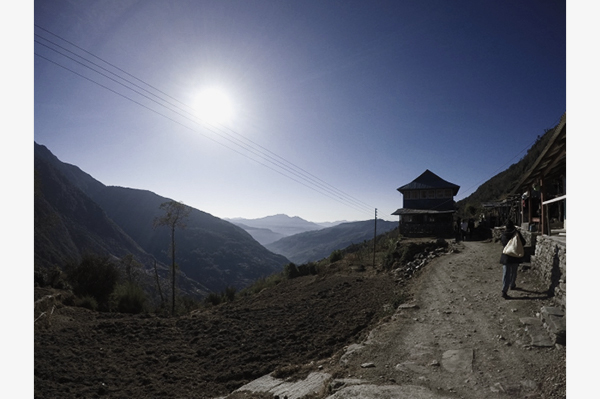
When speaking about the reasons for choosing to undertake her elective in Nepal and at the Tilganga Institute of Ophthalmology, Sunjuri said, “Nepal is unique in that there are a number of rural communities based in hilly and mountainous terrain. This often means that there are geographical, as well as cultural barriers, to accessing healthcare services. Unfortunately, in Nepal, most cases of blindness are preventable and cataracts are still extremely common. The Tilganga Institute of Ophthalmology, therefore plays a crucial role in the delivery of safe and affordable ophthalmic care as rural and remote regions can access their services. Moreover, Nepal is particularly vulnerable to environmental disasters. The complex interplay of lower socioeconomic status and limited access often means that patients do not receive adequate ophthalmic care.”
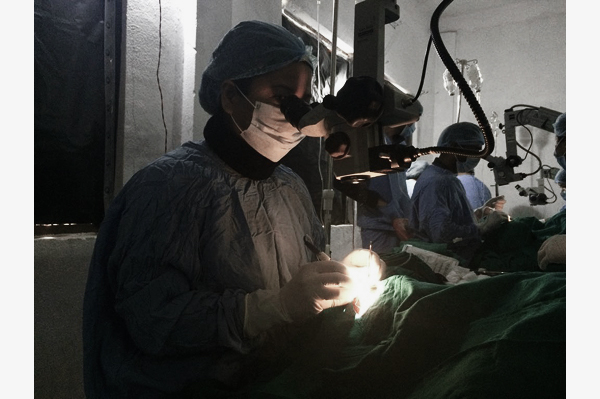
An eye opening experience
Sunjuri has a major interest in global health issues and is driven by her passion in the prevention of blindness in developing countries. Within her first week of arriving in Nepal, Sunjuri had the opportunity to participate in one of Tilganga’s surgical outreach camps. Healthcare staff and medical equipment were transported by bus and an old school classroom in the village was converted to a temporary operating theatre. “This was an incredibly eye-opening experience for me,” she says. “It was fascinating to be able to witness first-hand how high-quality and affordable services can be provided in low-resource settings. In one afternoon, the local school was transformed into a health clinic and the classroom was set up as a fully-functioning operating theatre with sterile equipment.”
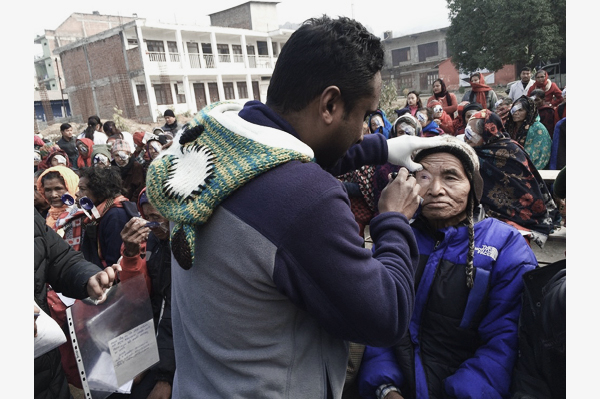
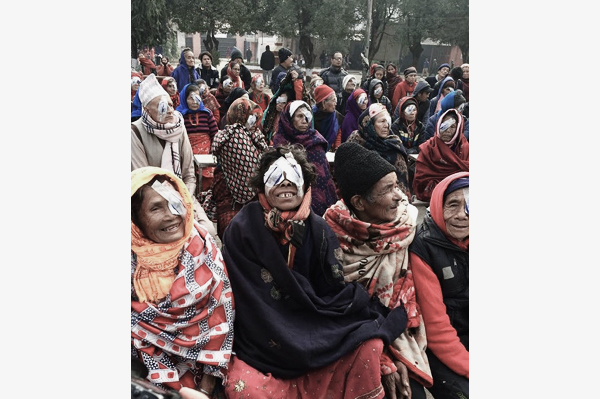 Over the next few days, hundreds of patients would flock to the school, all of whom had untreated cataracts. The ophthalmologists would start operating in the early hours of the morning and worked late into the night. “The dedication of all the doctors, nurses and ophthalmic technicians was truly inspirational,” says Sunjuri. “They were all working towards a common goal, which was to restore the eyesight of their patients. None of them would leave until the last patient had been treated, and that often meant that they were still operating at 9pm at night.”
Over the next few days, hundreds of patients would flock to the school, all of whom had untreated cataracts. The ophthalmologists would start operating in the early hours of the morning and worked late into the night. “The dedication of all the doctors, nurses and ophthalmic technicians was truly inspirational,” says Sunjuri. “They were all working towards a common goal, which was to restore the eyesight of their patients. None of them would leave until the last patient had been treated, and that often meant that they were still operating at 9pm at night.”
Patients would return the day after their surgery to have their eyes and visual acuity re-checked. “It was fantastic to see patients, who were previously unable to see anything, being able to read the eye charts after their surgery.” There was one elderly woman in particular that Sunjuri recalls, who smiled at her toothlessly and tried to say something to her in Nepali. It was only when one of the staff members translated for her that Sunjuri found out that the lady was thanking them for allowing her to see her grandchild’s face for the first time.
Following in the footsteps of her role model
As part of her placement, Sunjuri become involved in research on diabetic retinopathy, a condition that affects the back of the eye in patients with diabetes and can cause blindness, as well as a project examining the prevalence and causes of visual impairment in Nepal. “I was honoured to work with such an extraordinary team of researchers at the Tilganga Institute of Ophthalmology,” says Sunjuri. “Whilst I was able to see the difference that surgery could make to individual patients during the outreach camp, research has the potential to improve patient outcomes on a population scale and shape the future of healthcare.” Sunjuri was also able to finesse the art of examining eyes with a slit-lamp biomicroscope during outpatient clinics and witness highly specialised surgical procedures in the operating theatre, from laser photocoagulation, (used to treat retinopathy of prematurity which is a condition that affects preterm infants) to small incision lenticule extraction surgeries (to treat refractive errors).
As an aspiring ophthalmologist, Sunjuri says this overseas experience was critical in providing her with a better understanding of the barriers developing countries face when providing eye care. “This was also the first step for me in embarking on a career with a global health focus". “
Sunjuri's childhood role model was Dr Fred Hollows, an ophthalmologist who restored eyesight to countless patients in both Australia and the developing world, and whose pioneering work paved the way to ending avoidable blindness on a global scale. "He was actually instrumental to the establishment of the Tilganga Institute of Nepal and the cost-effective intra-ocular lenses manufactured by the Fred Hollows Foundation were used during the surgical camp I participated in." she says.
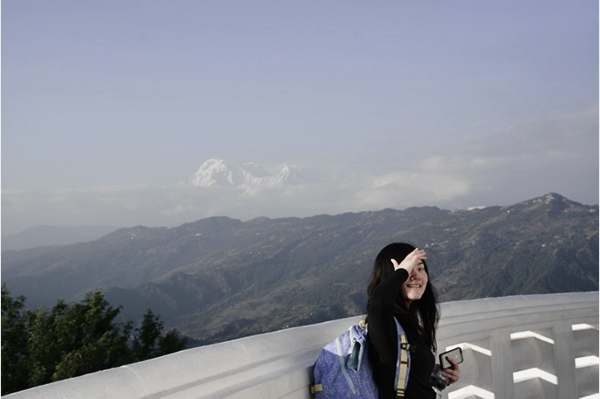
"Ultimately, I believe this experience will make me a better and more compassionate doctor, which I hope will be reflected in my future patient care. I am so grateful to BOQ Specialist for providing me with this unforgettable experience and I have no doubt that this will shape the trajectory of my career.” - Sunjuri Sun.
 Facebook
Facebook
Like and follow us on Facebook to keep up to date with all our student offers, events, competitions and more.
